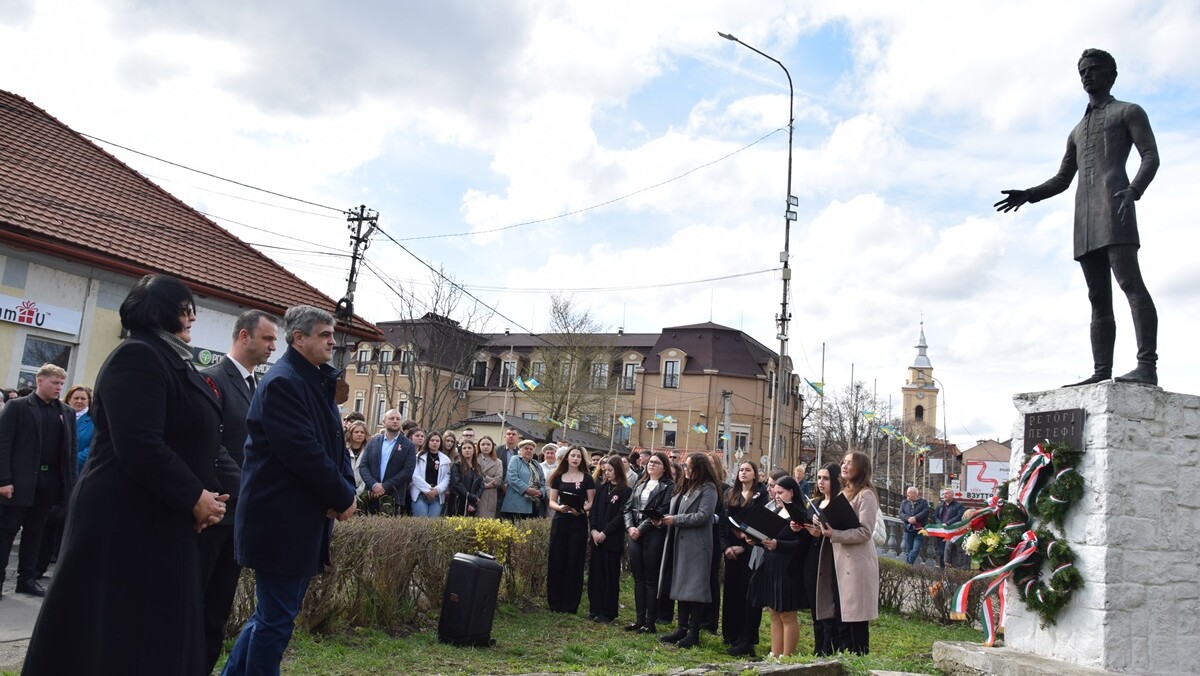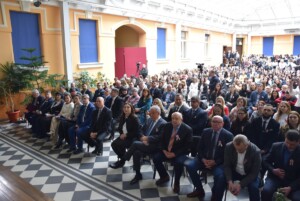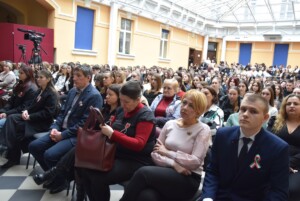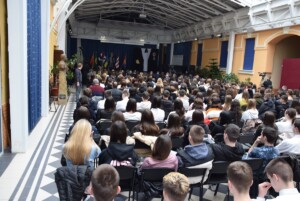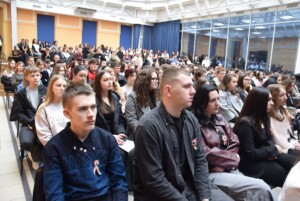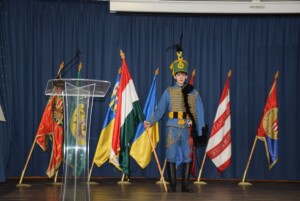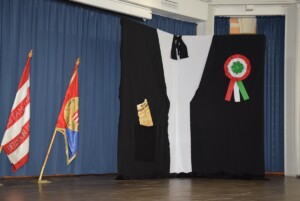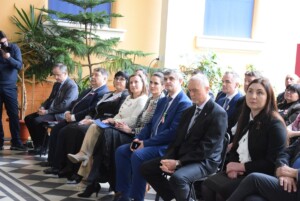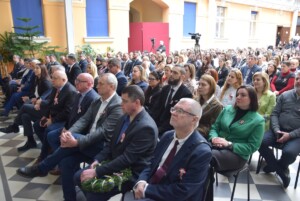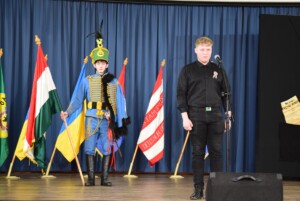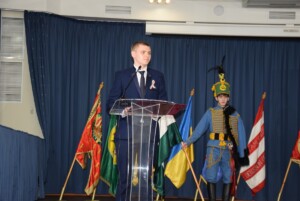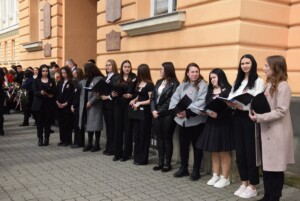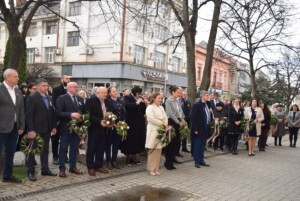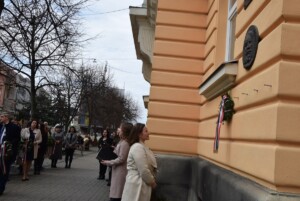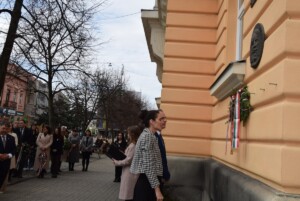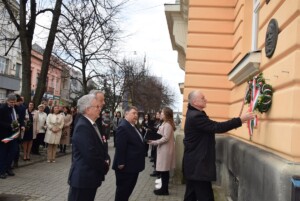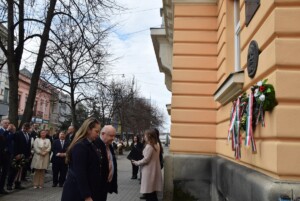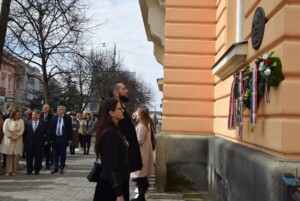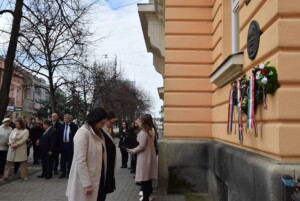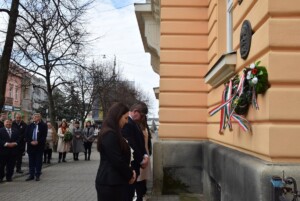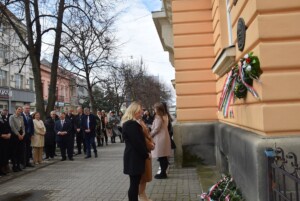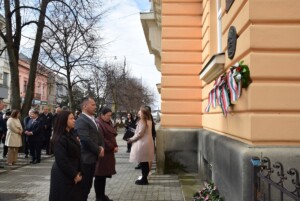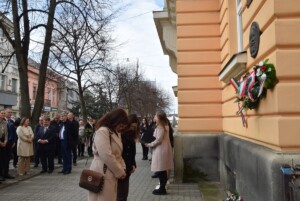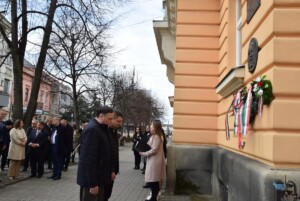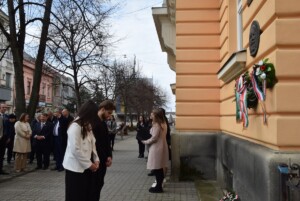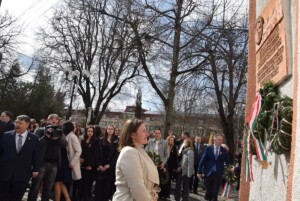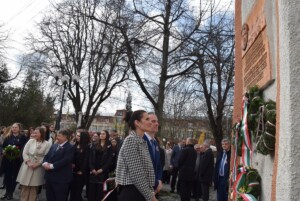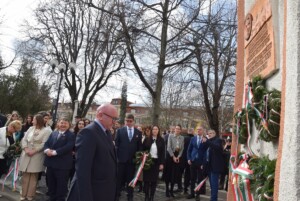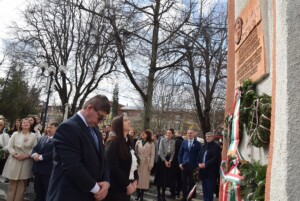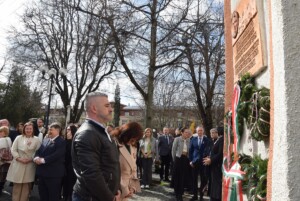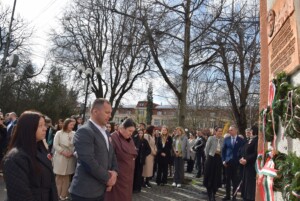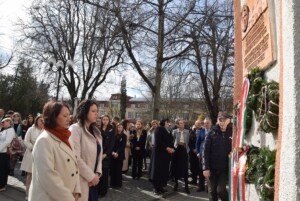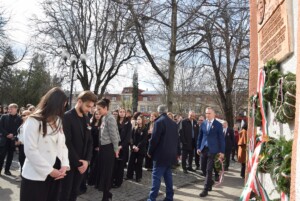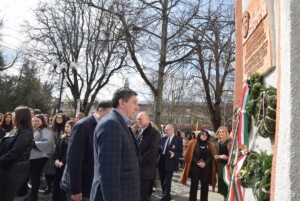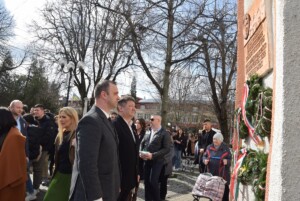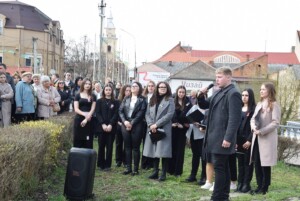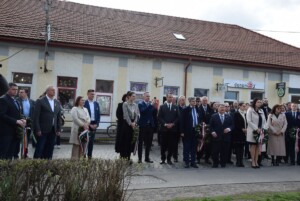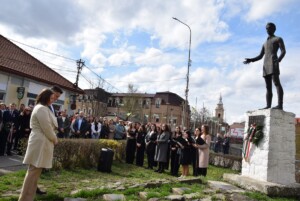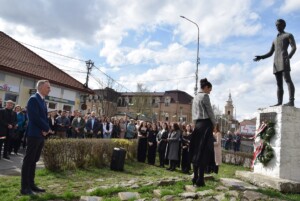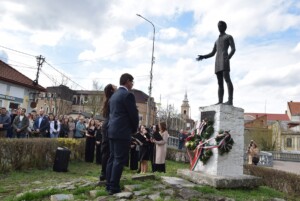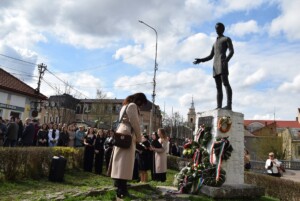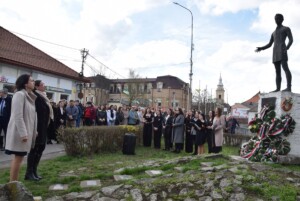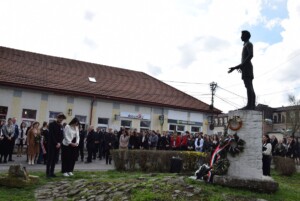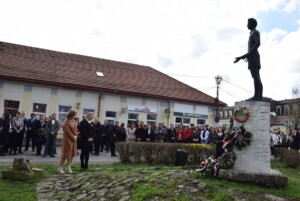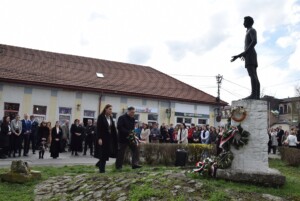Honoring the brave – The Rákóczi College commemorates the heroes of the Hungarian Revolution and War of Independence of 1848–1849
1848-49 was a defining moment in the life of our Hungarian nation. A handful of young people believed they could bring about change and secure their own freedom. While the revolution prevailed, the war of independence was lost, yet the memory of the heroes continues to live on in history.
On March 14, the II. Ferenc Rákóczi Transcarpathian Hungarian College of Higher Education and the Sándor Fodó Cultural Center honored the heroes with a commemoration and wreath-laying ceremony.
The event began with the singing of our national prayer, the Himnusz.
Then István Gyebnár, chargé d’affaires of the Consulate of Hungary in Beregszász, interpreted the words of Viktor Orbán, Prime Minister of Hungary:
“We, Hungarians, desire nothing more in 2025 than to live a full life: to use our mother tongue and symbols freely and without restrictions, and to celebrate our national heritage in peace, which elevates us among Europe’s most significant cultural nations. […] Protecting our national interests is our duty. We must stand together against those forces that seek to undermine the rights of Hungarian communities.”
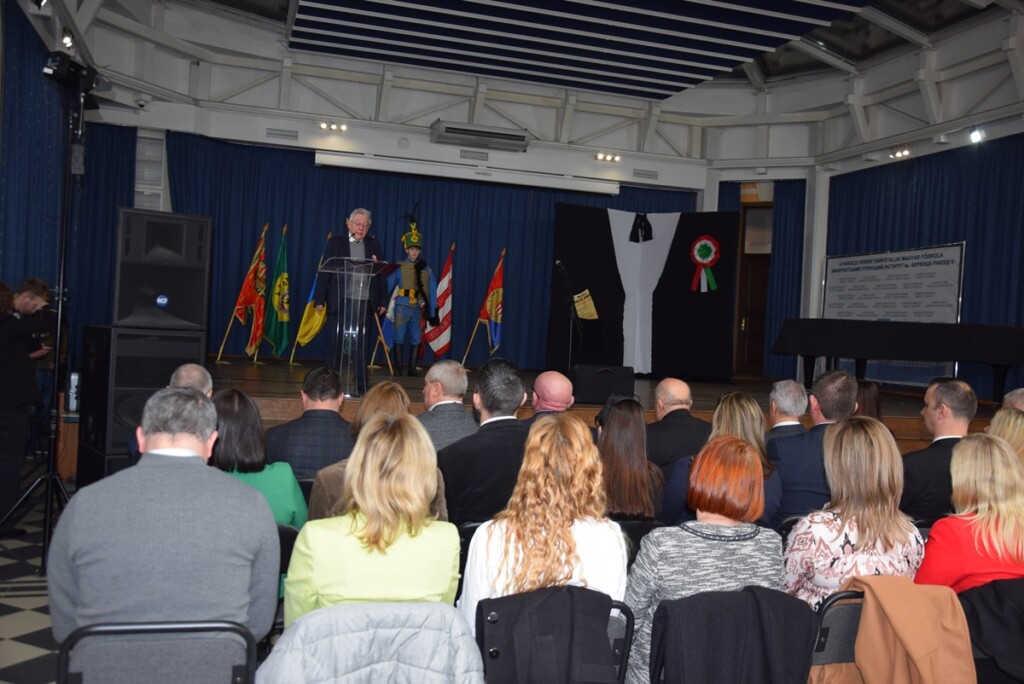
Viktória Ferenc, MEP of Fidesz, emphasized that the Hungarian community in Transcarpathia has endured and overcome many tragedies.
“We have endured the malenkiy robot, Soviet oppression, and intimidation, and we will also get through this current period of war. But you know what? It is precisely in times of crisis that one discovers true inner strength and resourcefulness. It is not wealth, a house, or a car, but courage, problem-solving skills, and perseverance – that is our Transcarpathian Hungarian DNA. When we bow our heads before the monuments of Lajos Kossuth or Sándor Petőfi, we are not only paying tribute to the heroes of the Hungarian people but also expressing our gratitude for the example they set before us—to face even the greatest and most daunting storms ahead with courage and perseverance,”
added the representative.
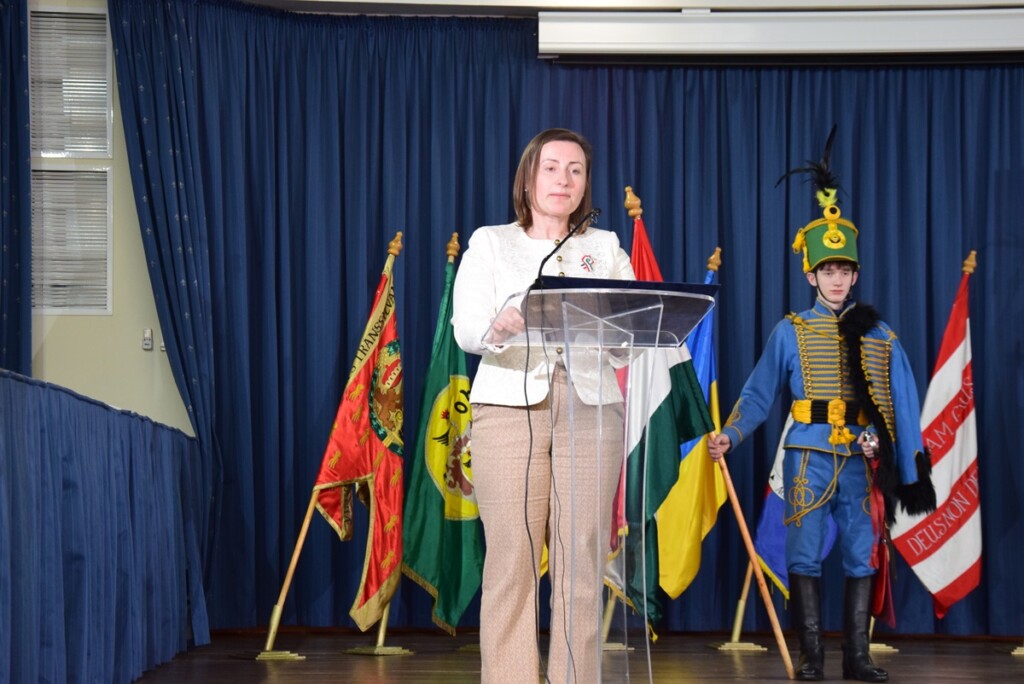
This was followed by a performance from Szilveszter Ferku, a laboratory assistant at the Rákóczi College’s Department of Philology, who presented the song Harangok dala by the band Kormorán.
Zsófia Nagy-Vargha, Deputy State Secretary for Youth at the Ministry of Culture and Innovation, emphasized that 2025 is a particularly significant year for us, as we celebrate the 200th anniversary of Mór Jókai’s birth.
“Jókai was an advocate for a sovereign, self-reliant, proud, and strong Hungary, and that is why he worked tirelessly. He did not falter even when he had to defend his homeland with arms, and he considered words and arguments to be at least as powerful weapons as his bayoneted rifle. This year, during the Jókai Memorial Year, we also celebrate the Year of Patriotism. In 1848–49, it was the youth who fought for freedom. It was the same in 1956 and in 1989, during the regime change. This struggle also belonged to the young people who believed in the future and in the strength of the nation and the unity of the community. This is the historical legacy that connects us, Hungarians, both within and beyond the borders,”
she added.
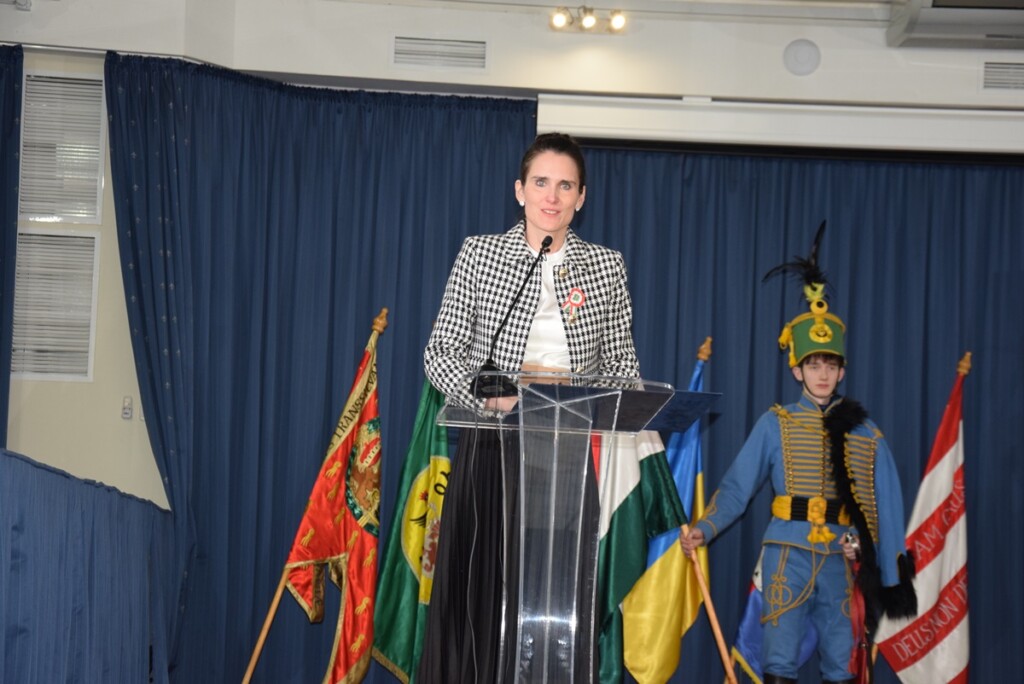
She was followed by József Béres, a second-year applied mathematics student at the Vocational High School of the Rákóczi College, who delivered his winning speech as the winner of the 9th Transcarpathian Hungarian Oratory Competition.
As the closing act of the event, attendees placed wreaths of remembrance under the Kossuth memorial plaque on the wall of the College, the Petőfi memorial plaque on the wall of the Theater in Beregszász, and the statue of Sándor Petőfi by the Arany Páva restaurant, where the Nemzeti Dal was recited in an interpretation by Szilveszter Ferku.
During the wreath-laying ceremonies, second-year students from the Department of Pedagogy, Psychology, Primary Education, Preschool Education, and Educational Institution Management of the Rákóczi College, as well as Rebeka Kocsis and Alexa Lázár, students of Accounting and Taxation, performed the Kossuth-nóta and the folk song Gábor Áron rézágyúja. The students were prepared by instructor Erzsébet Kokas.
Anita Kurmay
-
This article is also available in
Українська
Magyar

